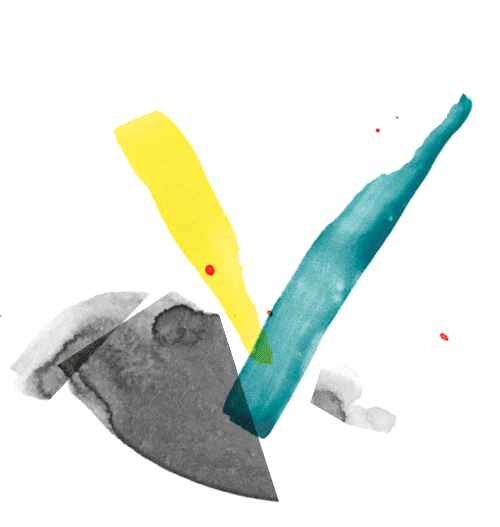

Sign up for our newsletters. You can change the settings or unsubscribe at any time.
Thank you for your subscription. We have sent you an e-mail with a confirmation link.


exp. 1
exp. 2
exp. 3

Marwa Arsanios
Venue: KW Institute for Contemporary Art
Was also part of: exp. 1
Marwa Arsanios
Born 1978 in Washington, D.C., US – lives and works in Berlin, DE, and Beirut, LB
Reasserting the fundamentals of life against the machineries of capitalist exploitation is at the core of today’s anti-colonial struggle for wider social and political change, and women are fighting on its different frontiers. The three films of Marwa Arsanios’ Who is Afraid of Ideology? series (2017–20) weave an intersectional path through these struggles of women—in places such as Northern Syria and Colombia—to claim the right to the land and to reconnect with nature in an unmediated way. Self-defense, eco-feminism, ownership, healing, resisting state control, autonomy, collectivity, Indigenous struggle, seed protection, and land rights define the common ground of women who are resisting extractivist industries.
How are we choosing to live and survive today? Can ideologies be transformative? How can life be fostered within the context of military conflict and war? Arsanios’ timely questions probe not only the ways in which ideology and theory coincide with living practice but also whether “we” who are outside these circles of struggle can embody answers. Who is Afraid of Ideology? (Part 1) (2017) and (Part 2) (2019) are shaped around interviews the artist made with members of the Kurdish Autonomous Women’s Movement in Iraqi Kurdistan and Jinwar, a women-only commune in northern Syria, exploring the possibilities of a political praxis based on an existence close to nature and within armed struggle. While producing the films, Arsanios organized different meetings with women farmers and ecological feminists from Syria, Lebanon, Colombia, Mexico, India, Poland, Denmark, and Greece to exchange knowledge around their cooperatives and communes.
Who is Afraid of Ideology? (Part 3) – Microresistances (2020) draws from these intense exchanges and footage partly filmed in the south of Tolima in Colombia. The last film of the trilogy focuses on the ongoing systemic war waged by transnational corporations against the smallest and the most essential element of life—the seed.
Övül Ö. Durmusoglu
Weaving Solidarity
Renata Cervetto and Duygu Örs
Q&A
Grupo Experimental de Cine en acción
Gabriel Peluffo
Drawing
II: La Solidaridad va Más Allá de un Concepto. Entre las Curadoras de la XI Berlin Biennale
Lisette Lagnado, Agustín Pérez Rubio
Conversation
Touching Feeling. Affect, Pedagogy, Performativity
Eve Kosofsky Sedgwick
Monograph
Being in Crisis together – Einander in Krisen begegnen
Feminist Health Care Research Group (Inga Zimprich/Julia Bonn)
Online workshop
Freiheit für Chile!
Anonymous
Photo album
By using this website you agree to the use of cookies in accordance with our data privacy policy.

Marwa Arsanios
Venue: KW Institute for Contemporary Art
Was also part of: exp. 1
Marwa Arsanios
Born 1978 in Washington, D.C., US – lives and works in Berlin, DE, and Beirut, LB
Reasserting the fundamentals of life against the machineries of capitalist exploitation is at the core of today’s anti-colonial struggle for wider social and political change, and women are fighting on its different frontiers. The three films of Marwa Arsanios’ Who is Afraid of Ideology? series (2017–20) weave an intersectional path through these struggles of women—in places such as Northern Syria and Colombia—to claim the right to the land and to reconnect with nature in an unmediated way. Self-defense, eco-feminism, ownership, healing, resisting state control, autonomy, collectivity, Indigenous struggle, seed protection, and land rights define the common ground of women who are resisting extractivist industries.
How are we choosing to live and survive today? Can ideologies be transformative? How can life be fostered within the context of military conflict and war? Arsanios’ timely questions probe not only the ways in which ideology and theory coincide with living practice but also whether “we” who are outside these circles of struggle can embody answers. Who is Afraid of Ideology? (Part 1) (2017) and (Part 2) (2019) are shaped around interviews the artist made with members of the Kurdish Autonomous Women’s Movement in Iraqi Kurdistan and Jinwar, a women-only commune in northern Syria, exploring the possibilities of a political praxis based on an existence close to nature and within armed struggle. While producing the films, Arsanios organized different meetings with women farmers and ecological feminists from Syria, Lebanon, Colombia, Mexico, India, Poland, Denmark, and Greece to exchange knowledge around their cooperatives and communes.
Who is Afraid of Ideology? (Part 3) – Microresistances (2020) draws from these intense exchanges and footage partly filmed in the south of Tolima in Colombia. The last film of the trilogy focuses on the ongoing systemic war waged by transnational corporations against the smallest and the most essential element of life—the seed.
Övül Ö. Durmusoglu
Weaving Solidarity
Renata Cervetto and Duygu Örs
Q&A
Grupo Experimental de Cine en acción
Gabriel Peluffo
Drawing
Memorial to the Sinti and Roma Victims of National Socialism
Dani Karavan
Memorial
Being in Crisis together – Einander in Krisen begegnen
Feminist Health Care Research Group (Inga Zimprich/Julia Bonn)
Online workshop
Undocumented Rumours and Disappearing Acts from Chile
María Berríos
Essay
A Moment of True Decolonization / Episode #6: Sinthujan Varatharajah. Constructing the Tamil Eelam State
The Funambulist / Sinthujan Varatharajah
Podcast
By using this website you agree to the use of cookies in accordance with our data privacy policy.

Marwa Arsanios
Venue: KW Institute for Contemporary Art
Was also part of: exp. 1
Marwa Arsanios
Born 1978 in Washington, D.C., US – lives and works in Berlin, DE, and Beirut, LB
Reasserting the fundamentals of life against the machineries of capitalist exploitation is at the core of today’s anti-colonial struggle for wider social and political change, and women are fighting on its different frontiers. The three films of Marwa Arsanios’ Who is Afraid of Ideology? series (2017–20) weave an intersectional path through these struggles of women—in places such as Northern Syria and Colombia—to claim the right to the land and to reconnect with nature in an unmediated way. Self-defense, eco-feminism, ownership, healing, resisting state control, autonomy, collectivity, Indigenous struggle, seed protection, and land rights define the common ground of women who are resisting extractivist industries.
How are we choosing to live and survive today? Can ideologies be transformative? How can life be fostered within the context of military conflict and war? Arsanios’ timely questions probe not only the ways in which ideology and theory coincide with living practice but also whether “we” who are outside these circles of struggle can embody answers. Who is Afraid of Ideology? (Part 1) (2017) and (Part 2) (2019) are shaped around interviews the artist made with members of the Kurdish Autonomous Women’s Movement in Iraqi Kurdistan and Jinwar, a women-only commune in northern Syria, exploring the possibilities of a political praxis based on an existence close to nature and within armed struggle. While producing the films, Arsanios organized different meetings with women farmers and ecological feminists from Syria, Lebanon, Colombia, Mexico, India, Poland, Denmark, and Greece to exchange knowledge around their cooperatives and communes.
Who is Afraid of Ideology? (Part 3) – Microresistances (2020) draws from these intense exchanges and footage partly filmed in the south of Tolima in Colombia. The last film of the trilogy focuses on the ongoing systemic war waged by transnational corporations against the smallest and the most essential element of life—the seed.
Övül Ö. Durmusoglu
By using this website you agree to the use of cookies in accordance with our data privacy policy.

Marwa Arsanios
Venue: KW Institute for Contemporary Art
Was also part of: exp. 1
Marwa Arsanios
Born 1978 in Washington, D.C., US – lives and works in Berlin, DE, and Beirut, LB
Reasserting the fundamentals of life against the machineries of capitalist exploitation is at the core of today’s anti-colonial struggle for wider social and political change, and women are fighting on its different frontiers. The three films of Marwa Arsanios’ Who is Afraid of Ideology? series (2017–20) weave an intersectional path through these struggles of women—in places such as Northern Syria and Colombia—to claim the right to the land and to reconnect with nature in an unmediated way. Self-defense, eco-feminism, ownership, healing, resisting state control, autonomy, collectivity, Indigenous struggle, seed protection, and land rights define the common ground of women who are resisting extractivist industries.
How are we choosing to live and survive today? Can ideologies be transformative? How can life be fostered within the context of military conflict and war? Arsanios’ timely questions probe not only the ways in which ideology and theory coincide with living practice but also whether “we” who are outside these circles of struggle can embody answers. Who is Afraid of Ideology? (Part 1) (2017) and (Part 2) (2019) are shaped around interviews the artist made with members of the Kurdish Autonomous Women’s Movement in Iraqi Kurdistan and Jinwar, a women-only commune in northern Syria, exploring the possibilities of a political praxis based on an existence close to nature and within armed struggle. While producing the films, Arsanios organized different meetings with women farmers and ecological feminists from Syria, Lebanon, Colombia, Mexico, India, Poland, Denmark, and Greece to exchange knowledge around their cooperatives and communes.
Who is Afraid of Ideology? (Part 3) – Microresistances (2020) draws from these intense exchanges and footage partly filmed in the south of Tolima in Colombia. The last film of the trilogy focuses on the ongoing systemic war waged by transnational corporations against the smallest and the most essential element of life—the seed.
Övül Ö. Durmusoglu
Being in Crisis together – Einander in Krisen begegnen
Feminist Health Care Research Group (Inga Zimprich/Julia Bonn)
Online workshop
A World Without Bones
Agustín Pérez Rubio
#fight4rojava
Graffiti
Maternidades subversivas
María Llopis
Monograph
Hatred Among Us
Lisette Lagnado
Essay
New Look
Flávio de Carvalho
Performance
By using this website you agree to the use of cookies in accordance with our data privacy policy.
By using this website you agree to the use of cookies in accordance with our data privacy policy.




